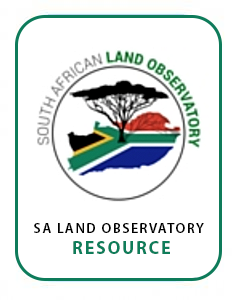Location
What is the Parliamentary Monitoring Group?
The Parliamentary Monitoring Group, an information service, was established in 1995 as a partnership between Black Sash, Human Rights Committee and Idasa with the aim of providing a type of Hansard for the proceedings of the more than fifty South African Parliamentary Committees for these three advocacy organisations. This was because there is no official record publicly available of the committee proceedings - the engine room of Parliament - and this type of information is needed by social justice organisations to lobby the Parliament of South Africa on pieces of legislation, matters of democratic processes and parliamentary oversight of the executive.
This website was set up at the beginning of 1998 to make the information generated available to a wider audience. Presently this is the only source for this type of information. We hope that the PMG committee reports and other documents will provide the public with an insight into the Parliament of South Africa and its daily activity. Importantly it provides a window into the performance of each government department and public entity over which each parliamentary committee has oversight.
PMG became a fully fledged independent NGO in July 2009.
Members:
Resources
Displaying 36 - 40 of 75Department of Rural Development and Land Reform response to South African Human Rights Commission recommendations, with Deputy Minister in attendance
The Deputy Minister tendered apologies on behalf of the Minister and the Director General for their absence due to other ministerial commitments.
The Commission on Restitution of Land Reform (Commission) briefed the Committee on responses to the South African Human Rights Commission (SAHRC) findings on systematic challenges affecting land restitution in South Africa. The brief focussed on the background of the SAHRC investigative hearing, summary of the findings of the SAHRC, strategic plan of the commission, and response on each finding and recommendations of the SAHRC.
Agrément South Africa Bill [B3B-2015] adoption; Expropriation Bill [B4-2015]: consideration of submissions received
The Chairperson went through the A-List and verified that the amendments had been effected in the Agrément South Africa Bill [B3B-2015]. Members moved to adopt the Bill, and it was adopted.
Land Rights Management Facility Fourth Quarter 2014 report: Department of Rural Development & Land Reform briefing, with input from Minister
The Department of Rural Development and Land Reform (DRDLR) and the Minister briefed the Committee on the performance, outcomes and challenges of the Land Rights Management Facility, presenting the Fourth Quarter 2014 report, and also touching on the Extension of security of tenure (land) Amendment Bill. It was noted that the Land Rights Management Facility (LRMF) tried to facilitate provision of specialised legal and mediation services to indigent communities and individuals faced with violations of their rights pertaining to land and livelihood.
Department of Rural Development & Land Reform & its entities on 4th quarter expenditure trends & outcomes against 2014/15 Strategic Plans & APP
The Department of Rural Development and Land Reform (DRDLR) and the Ingonyama Trust Board presented their fourth quarter performance and financial reports for 2014-15. The Committee also received at status report on the Riemvasmaak community claim.
Committee Report on Department of Rural Development & Land Reform Budget, Riemvasmak & Rama Communal Property Association progress reports
The meeting began with the adoption of the draft report on the budget vote 39, where a number of small issues were raised, including typos and minor amendments. The main thrust of the changes was that the Land Claims Court should be given greater priority, and a policy needed to be put in place to help with alleviating the bottlenecks in these courts. The adoption of the report became heated when the DA abstained from approving it, even though they had been a part of the process from the beginning.



